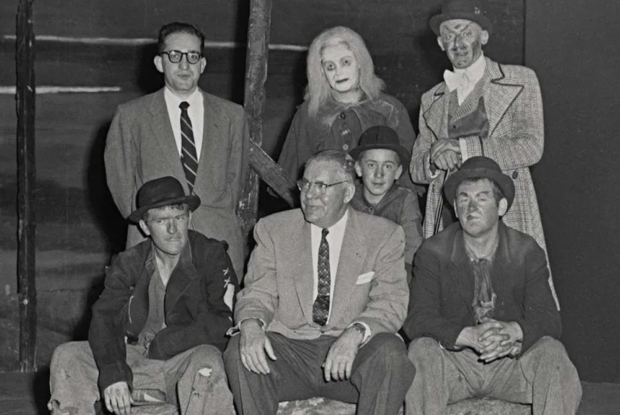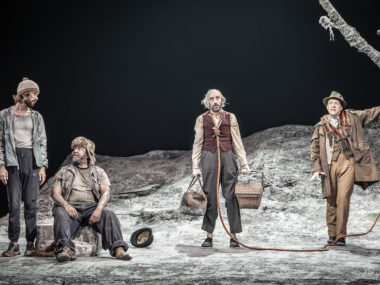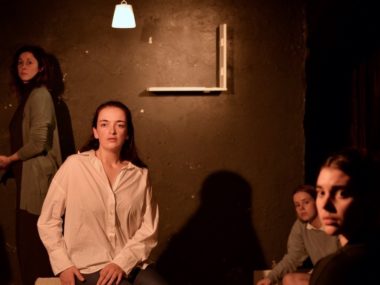About The Impossible Itself
Saturday 31st August 2024

As a new production of Samuel Beckett’s Waiting for Godot is about to open in London’s West End, I was lucky enough to get the chance to watch The Impossible Itself (2010), Jake Adams’s documentary about the earliest prison productions of the play, especially the 1957 San Quentin Prison performance by the San Francisco Actors Workshop, whose avant-garde work included plays by Harold Pinter, Bertolt Brecht and Jean Genet. In an interview for The Beckett Circle, Adams says, “It was about the age of 16 when I first got a copy of and read Waiting for Godot. That experience was like no other in my entire life. This work hit me in such a powerful way and expressed so many of these things that I was feeling at that time. I still feel today, honestly, but especially as a teenager with so much uncertainty and angst and not knowing where you are in the world.” Reading Martin Esslin’s book, The Theatre of the Absurd, and then Damned to Fame by James Knowlson, also encouraged him to make this, his first film, which he accomplished as a passion project. Running at 50 minutes, it includes fascinating contributions by Herbert Blau, who directed the San Quentin production, plus cast, prisoners and wardens. There is material about prison conditions — total surveillance and the lack of privacy — and the injustices of the American criminal justice system, as well as compelling detail about Beckett’s early work staged in Germany’s Luttringhausen Prison and the Philantropin Jewish Cultural Centre. While living in Paris, Beckett also communicated with Santé Prison inmates by means of mirror signals from his flat. The documentary covers audience reactions, their interpretations of the themes of the play, as well as material about the San Quentin Jazz Band. The Impossible Itself is an excellent, and essential, contribution to understanding Beckett’s most celebrated play.
© Aleks Sierz
- Jake Adams generously shares The Impossible Itself (password Quixote1!)




